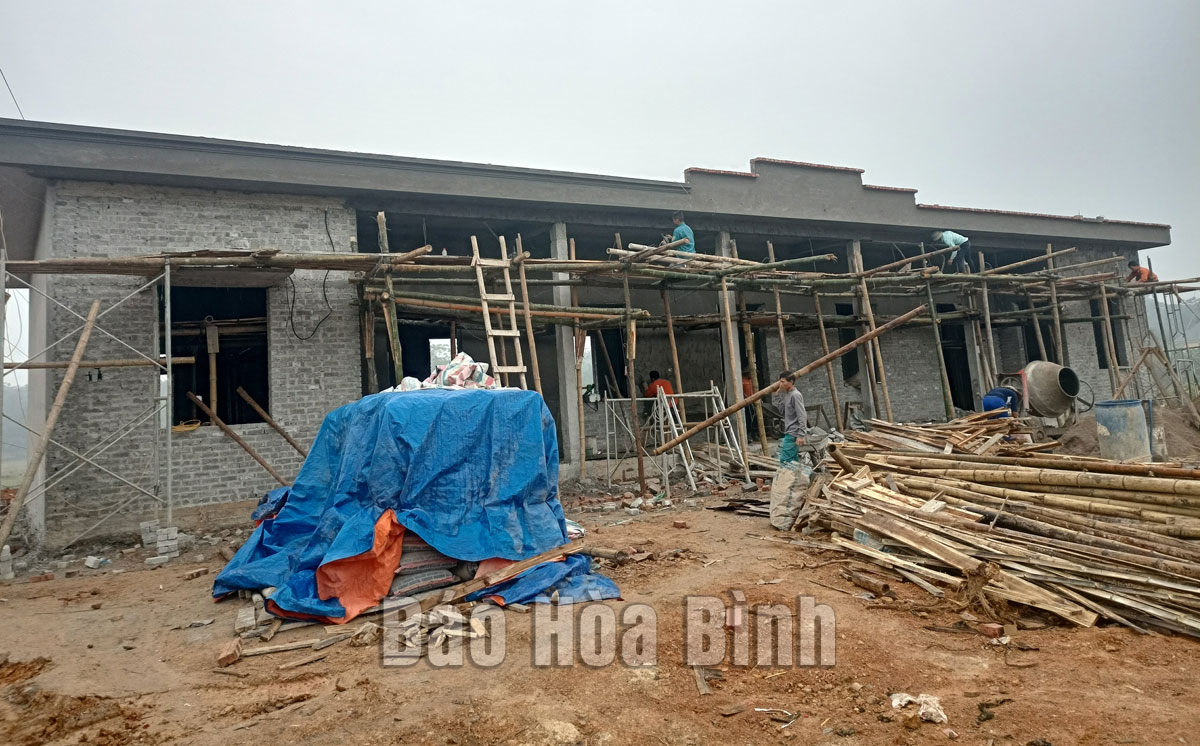
(HBO) – Over the past time, Kim Boi district’s People’s Committee in the northern mountainous province of Hoa Binh has made great efforts in infrastructure investment in ethnic minority and far-flung areas in order to implement the national target programme for socio-economic developmentin ethnic minority and mountainous areas.

Culture house in Thao Ca village, Vinh Tien
commune, Kim Boi district, is built to improve the quality of life of people in
ethnic minority areas.
Notably, members of ethnic minority groups make up 86% of the
district’s population, however traffic and essential infrastructure works in the
locality have not been harmonised, affecting socio-economic development.
In an attempt to create a driving force to promote
socio-economic development in ethnic minority and mountainous areas during
2016-2021, the district has invested in 272 infrastructure projects with a
total investment capital of more than 122 billion VND (about 5.2 million USD)
and 12 others under the Irish Government’s aid programme with a total
investment of more than 9 billion VND. In 2022, the district was allocated 53.7
billion VND for development investment.
Bui Quang Hop, deputy head of Kim Boi District's Ethnic Minority
Department, said with timely implementation of the proposed tasks and solutions
along with the consensus and efforts of the locals, living standard of ethnic minority
people has been improved significantly.
Currently, all roads of ethnic minority communities were
connected to the commune centre, 97% of households in rural areas have access
to tap water, and many residential areas have spacious culture houses.
Besides, school and healthcare systems have enjoyed due
attention, contributing to improving the quality of education and people's
health./.
The emulation movement "Hoa Binh joining hands to build new-style rural areas” has been widely spreading, becoming a driving force that motivates the localities to renew rural landscapes and improve the material and spiritual lives of the residents. In this movement, the people play a central role-both as the main implementers and direct beneficiaries of its outcomes.
In response to the global digital revolution, Hoa Binh Newspaper is transforming itself into a modern and multi-platform media hub, blending cutting-edge technology with a restructured newsroom and a new generation of tech-savvy journalists.
Hoa Binh province’s Association of the Elderly recently held a conference to review the project on expanding the inter-generation self-help club model until 2025.
In a move to implement Resolution No. 57-NQ/TW, issued on December 22, 2024 by the Politburo, which targets breakthroughs in science-technology development, innovation, and digital transformation, the Hoa Binh provincial Department of Health has issued a plan to roll out the "Digital Literacy for All” campaign within the local health sector.
An Nghia Commune (Lạc Sơn District) is one of the communes that achieved the tha standard of the national new rural area in 2018. Entering a new development phase, the commune is now trying to meet the criteria for the advanced new rural development. With the strong political will and the public consensus, the commune is gradually overcoming the challenges to reach this goal, aiming for the sustainable development.



